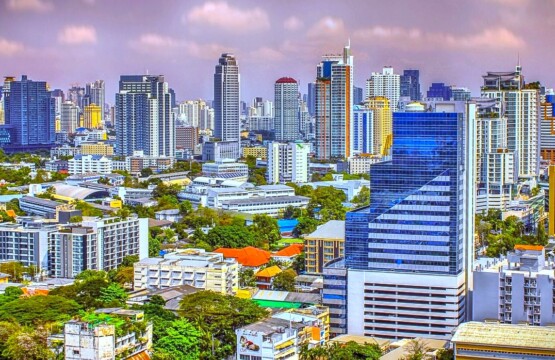In the ever-evolving landscape of remote work, Thailand emerges as a beacon, attracting digital nomads with its irresistible blend of modernity, affordability, safety, and cultural richness. The Land of Smiles has positioned itself as a paradise for those seeking a perfect balance between work and leisure. Let’s delve into why Thailand is calling all digital nomads, exploring the exciting opportunities and initiatives that make it a workation haven.
The Allure of Thailand for Digital Nomads
1. Modern Amenities and Low Living Costs
Thailand’s appeal to digital nomads lies in its offering of modern amenities against a backdrop of low living costs. From bustling urban centers to serene beachside locales, the country provides diverse environments for remote professionals to choose from. The affordability factor allows digital nomads to stretch their budgets without compromising on their quality of life.
2. Safety and Vibrant Local Culture
Safety is a top priority for any digital nomad, and Thailand delivers on this front. The country’s reputation for being welcoming and safe adds to its attractiveness. Beyond the practicalities, Thailand’s vibrant local culture, rich traditions, and warm hospitality contribute to a holistic experience for those looking to immerse themselves in a new way of life.
Thailand’s Digital Nomad Visa: Opening Doors to Long-Term Stays
1. Introduction of the Digital Nomad Visa
In a groundbreaking move in 2021, the Tourism Authority of Thailand proposed a dedicated digital nomad visa. This visa aims to cater to the unique needs of digital nomads and eligible individuals, providing them the opportunity to stay in Thailand for an impressive period of up to 10 years. The vision behind this initiative is to create a welcoming environment for remote workers, fostering a sense of belonging and long-term commitment.
2. Eligibility Criteria for the Digital Nomad Visa
To qualify for the digital nomad visa, applicants must meet specific criteria. They need to provide proof of an annual income of at least $40,000 and have insurance coverage of $100,000. These requirements ensure that those choosing Thailand as their workation destination are financially stable and covered for unforeseen circumstances, creating a secure environment for both the individuals and the host country.
Long-Term Resident (LTR) Visa: A Boon for Corporate Nomads
1. Opportunities for Employees of Major International Companies
Digital nomads and remote workers employed by major international companies may find the Long-Term Resident (LTR) visa particularly appealing. This visa opens the door to legal work in Thailand for a period of up to 10 years, with the option to extend further. Moreover, it goes a step further by allowing individuals to bring their spouses and children along, fostering a sense of community and family within the vibrant Thai landscape.
Chiang Mai: A Digital Nomad Hotspot in Thailand
1. The Growing Community of Remote Workers
Chiang Mai, nestled in the northern part of Thailand, has emerged as a hotspot for digital nomads. The city boasts a growing community of remote workers drawn to its unique combination of factors that make it an ideal workation destination.
2. Affordable Cost of Living and Good Weather
Chiang Mai’s allure lies in its affordable cost of living, offering digital nomads the opportunity to enjoy a comfortable lifestyle without breaking the bank. The city’s pleasant weather further enhances the experience, providing an environment conducive to both work and relaxation.
3. Fast Internet Connection and Varied Accommodation Options
Digital nomads thrive on a reliable internet connection, and Chiang Mai delivers with its fast and robust infrastructure. The city also offers a diverse range of accommodation options, catering to different preferences and budgets. Co-working spaces have become an integral part of Chiang Mai’s landscape, providing remote professionals with dedicated and collaborative work environments.
Legality of Remote Work in Thailand
1. Legal Framework Under the LTR Scheme
Thailand’s commitment to welcoming digital nomads is evident in the legal framework surrounding remote work. Under the Long-Term Resident (LTR) scheme, remote working is legal for overseas companies and employees who meet the stipulated requirements. This ensures that digital nomads can pursue their professional endeavors without legal hurdles, creating a seamless work experience.
2. Managing Online Shops Without a Work Permit
In a progressive move, Thailand allows digital nomads to manage their online shops without the need for a work permit. This flexibility acknowledges the changing nature of work and empowers individuals to explore entrepreneurial ventures while enjoying the cultural richness and scenic beauty that Thailand has to offer.
Conclusion: Thailand – Your Gateway to Workation Paradise
As Thailand extends its warm invitation to digital nomads, the landscape of remote work undergoes a transformative shift. The introduction of dedicated visas, the embrace of corporate nomads, and the thriving digital nomad community in cities like Chiang Mai showcase Thailand’s commitment to being a workation paradise.
Thailand is not just a destination; it’s an experience where modernity meets tradition, and work seamlessly intertwines with exploration. So, whether you envision yourself working against the backdrop of bustling Bangkok, embracing the tranquility of Chiang Mai, or soaking up the sun on the picturesque Thai islands, Thailand is calling all digital nomads to embark on a journey where work meets adventure in perfect harmony. Answer the call, and let Thailand be your gateway to workation bliss.














